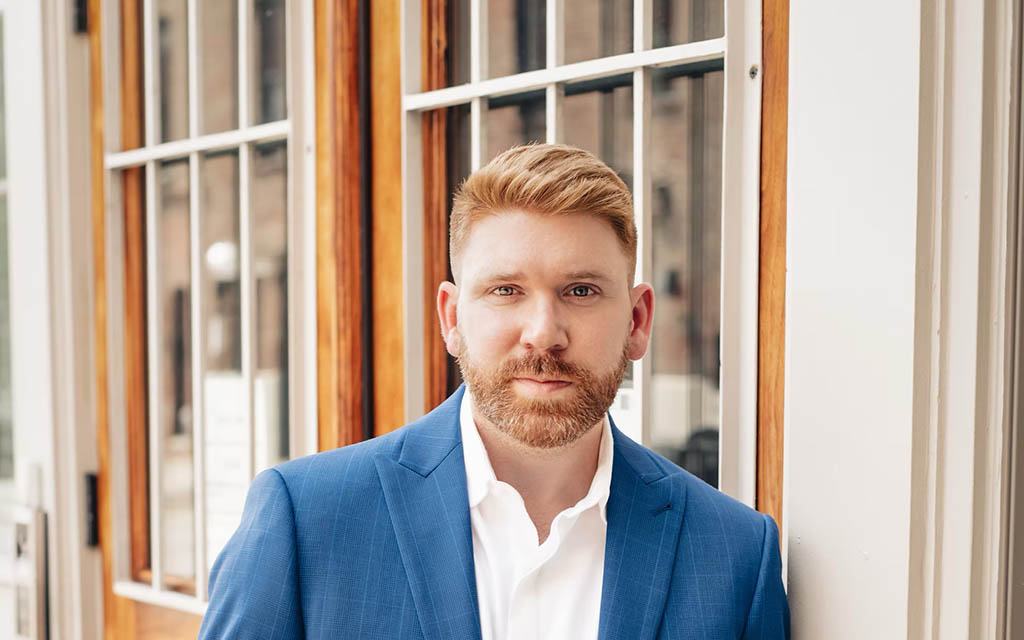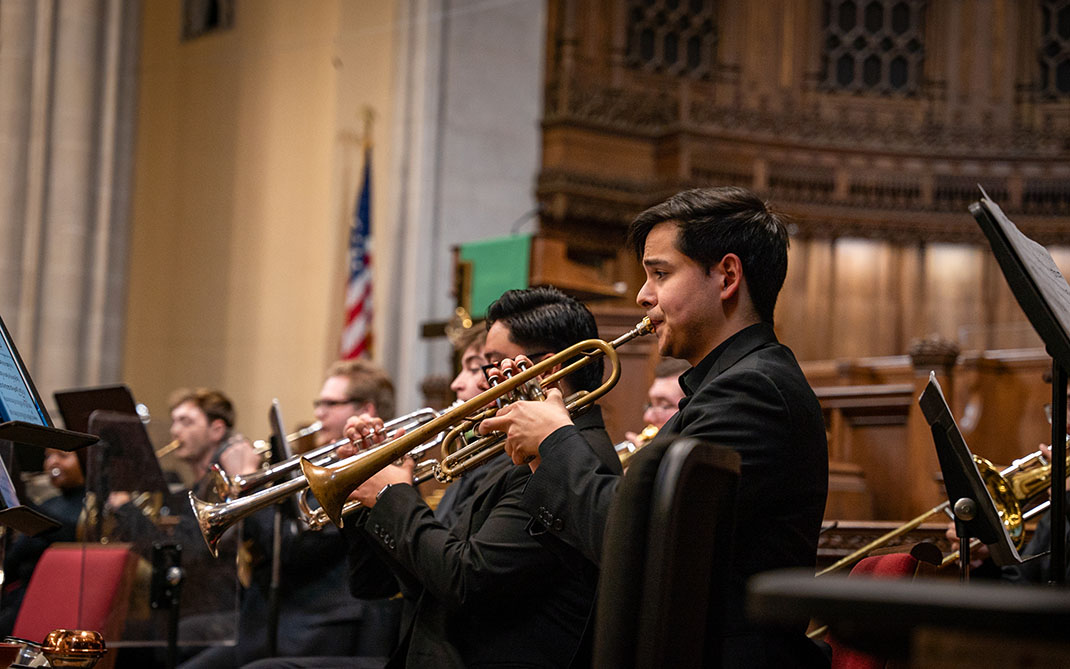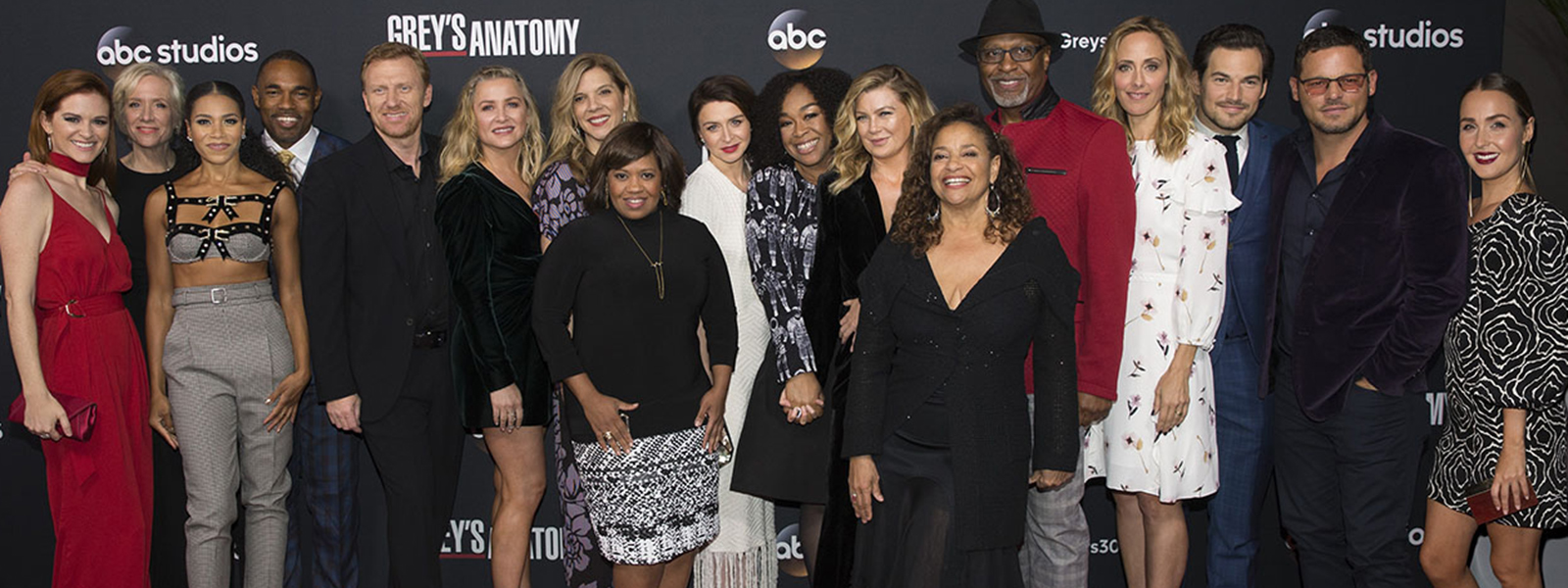The Artist as Leader: Krista Vernoff
Acclaimed writer and producer Krista Vernoff speaks openly about the trauma that she has faced in her life. In this powerful Artist as Leader interview with Rob Kramer, she reflects upon how those experiences—and her lifelong efforts to overcome them—have shaped her core values and, consequently, her leadership style. Vernoff applies lessons she has learned through experience and years of counseling and therapy in her role as an artist leader, striving to ensure that she actively listens to her team, creates a safe and nurturing environment, acknowledges her mistakes and leads from a place of joy and gratitude.
Select a question below to begin exploring the interview, or scroll down to read it in full.
- Can you talk about your upbringing and how it may have informed how you show up as a leader?
- Where and when did your creativity show up in your background?
- How do you see the creative process translating to leadership?
- What did you learn in those seven years about personal resilience, focus and purpose, that you're bringing back to “Grey's Anatomy?”
- How do you lead other artists?
- How do you nurture and free up the other writers to do their thing, while at the same time leading them the way you like being led?
- What is the hardest part, for you, of being a leader?
- In your experience, do the best leaders in creative communities have a heightened sense of self-awareness or self-regulation?
- In your opinion, what needs to change to encourage more artists to step up and lead?
- What advice would you like to have received when you were starting out as an artist leader?
- What big lesson learned or advice would you give a young up-and-comer?
- Epilogue
RK: Can you talk about your upbringing and how it may have informed how you show up as a leader?
KV: Sure. I come from a pretty serious amount of chaos, and a fair amount of abuse. I had to have a lot of therapy and recovery in my life and, as a result, I learned what I believe are excellent tools. In having to overcome the chaos and abuse of my childhood, I was forced, through my own need to recover, to study modalities of living — and by extension, I think, of leadership — that are successful, and proactive, and supportive, and the opposite of abusive. Many of my leadership approaches are rooted in my recovery and my understanding of the opposite of abuse, if that makes any sense.
… as a leader, I always apologize if I’ve been wrong. … It’s a misguided notion that one should appear to think they’re right at all times.
For example, as a leader, I always apologize if I've been wrong. As a parent, I always apologize if I've been wrong. That’s because I've learned through therapy and recovery that it's a misguided notion that one should appear to think they're right at all times, and that that creates anxiety in other people. But if you've called it wrong, or you've lost your temper, and you say, “Hey, I got that really wrong. Sorry, you guys. I created extra work for you,” it creates in people a feeling of safety. I didn't grow up with a feeling of safety, so I learned both as a parent and a professional to create a feeling of safety in the people around me.
RK: It's interesting you say that. There was a study recently which explored what makes the best teams at Google perform the highest, because everyone always holds up Google as “the place” to work. The study found that the primary component these highest-performing teams had in common was psychological safety.
KV: When I was going through a divorce, I spoke with child-development specialists about the best way to help my daughter, who was 2 1/2 at the time, navigate this change in her life. The parental impulse is to say to your child at all times, “Everything is OK. Everything is great.” The No. 1 thing the child- development specialist said to say is, “This is a super hard time. This is a really sad, hard, scary time.” She said the people who end up in therapy later in life are the ones whose parents were going through trauma and pain and sadness and grief — and saying, “Everything is fine. Everything is great.” They learn not to trust their emotional life, and it creates a feeling of unsafeness.
We had to learn to say to our 2-year-old, “Mommy and Daddy are really sad, and you're probably really sad, too, because our family is changing. But we're going to be OK. Everything is going to be OK, but it sure doesn't feel that way right now.” That is super counterintuitive as a parent, and I think it's also counterintuitive as a leader. But I think the same thing creates safety for people when, as the boss, you go, “Hey, I got that wrong,” or “I behaved poorly this morning.” They really appreciate having their reality acknowledged and named. They feel safer.
RK: I think it's so interesting, because in the arts, if we're not making mistakes, we're not improving the process. We're not creating better art. And yet, if the “leader” is not allowing space for that to occur, it stifles what the artist is wired to do.
KV: Right.
RK: How about you? Where and when did creativity show up in your background?
KV: My family is a family of artists. My mom is an actress and a video artist. My stepdad is a video artist. My stepmom was a stand- up comedian. My dad was a songwriter. So I was surrounded by the arts, and one of the things I feel my parents got really right is I was never raised with the notion that the arts were or should be any kind of secondary choice. A lot of the people that I know had to overcome parental programming that the arts are not a thing you make a living in. With my family, it was really the opposite. If you were going to decide to be a lawyer or something else, that would be rebellion. I mean, when I decided to become a writer, there was a tremendous amount of family upset that I was giving up acting.
RK: Even though you were staying in the creative world?
KV: Even though I was staying in the creative world, I think they were afraid, because I'd been trained and schooled as an actor. I think they thought that I was giving up my dreams in some way. They had a hard time adjusting to the notion that my dream had changed.
RK: Taking your creative work towards becoming an artist leader, how do you see the creative process translating to leadership? Because you've looked at it from multiple angles, starting as an actor, then a writer, producer, executive producer and director.
KV: I think the creative process is so fundamentally innate, and so fundamentally a part of who I am, that I don't think I can separate out those two things. I don't have rules by which I lead or a hat, like, “This is my leader hat, and this is my artist's hat.” I am creating as I lead. I am creating a relationship. I am creating a tone. I am creating a feeling of safety. I am creating a fun, collaborative, creative space.
For me, where creativity and leadership merge is that I have to find a way to be excited and creative within the confines of very specific parameters. When I choose to see those parameters as challenges which can delight me, I am much happier in my day-to-day.
But as an executive producer in television, one of your jobs as a leader is often to create within a certain budget, create within a certain timeline, create within very strict parameters that are business-related. So for me, where creativity and leadership merge is that I have to find a way to be excited and creative within the confines of very specific parameters. When I choose to see those parameters as challenges which can delight me, I am much happier in my day-to-day. I know people who see the business parameters of creating television as profound frustrations that shouldn't exist, and that somehow keep them from their creativity, and I think that creates an unhappiness. I think we have to embrace the parameters of our jobs. Look, if I can't make this on time and on budget, I don't get to keep my job, so I can't just say I'm a creative person. I also have to be a business person and, by extension, a leader.
The joy for me often is in finding the cuts and the changes, and the way to save the thing. You know, they come to you and they say, “You've got 14 guest stars, but we're only budgeted for nine.” Great. Fun. How do we find those cuts? I try to make that fun, like, “Let's figure out, you guys, how to take out five pages and five characters, and still get all of the heart, and all of the humor, and all of the feeling.” I try to let that be a creative challenge, rather than an angering limitation. I get excited by creative challenges.
RK: You create opportunity. You make a game of it, rather than saying, “These are parameters that are limiting my abilities, and if it weren't for those people, we could do what we want to do.”
KV: Right. I really think that, as with anything else, it's about an attitude. If you're coming at something like, “I hate these people and they're ruining my life, and this is miserable,” you’re maybe in the wrong field, or you're overworked, or you're overtired. You need a break. You need to be able to get your head into a positive place. This is about artistry and leadership, so for me, I am making a living as an artist. That's a pretty extraordinary thing in this country at this time. And If I can't grab hold of that gratitude and lead with it, lead from a place of joy and gratitude that I get to be here doing this, then I am overworked and I need to take a break. Honestly, Rob, I took a seven-year break. I did reach that point.
RK: Did you?
KV: I was the co-showrunner at “Grey's Anatomy” for the first seven seasons and I was overtired. I wasn't seeing my daughter enough, and I'd gone through a divorce, and I was really having a hard time finding joy and gratitude in my day-to-day. I made a decision to make a change. I think I took a 75 percent pay cut, and I worked mostly from home. Then I took a job at “Shameless” for five years, which was only a nine-hour-a-week writer's room, so most of the time I was in my bathrobe at home writing scripts. And I could take my daughter to school, and I could pick my daughter up from school, and I was able to recover from a lot of years of a lot of hours and a lot of depletion. I made that decision, and that decision really, really served my life.
Then Shonda Rhimes (producer of “Grey’s Anatomy”) came and said, “Do you want to come back, and do you want to come back in an increased capacity?” She increased my autonomy and my creative freedom. That is a real joy because it's a new challenge. I'm getting to do pieces of the job I didn't get to do before. And I got a seven-year break, and now I really, really love coming to work, and I'm able to lead from a place of joy and gratitude, and that is a pretty radical transformation in me. There are people who are still here who remember when I left seven years ago, and they're like, “You're a different person, you know?”
RK: You bring up a great point about the delicate nature of being able to continue to foster the creative energy, with the long hours, and the intensity, and the deadlines. What did you learn in those seven years about personal resilience, focus and purpose, that you're bringing back to “Grey's Anatomy?”
I know myself very well, and I think one of the keys to being an effective leader, ultimately, is to know yourself and to know your limitations, to know how you thrive, and to know when you're not.
KV: The break allowed me to put a lot of focus on my personal life. I am a person who really likes my relationships to be thriving. If they are thriving, then I can thrive at work. If they are not thriving, I struggle to thrive at work. I know myself very well, and I think one of the keys to being an effective leader, ultimately, is to know yourself and to know your limitations, to know how you thrive, and to know when you're not. My personal life was in such upheaval that I had a really hard time thriving at work.
I was able to put a lot of time and a lot of care into my child, and into my post-divorce relationship with my ex-husband, and into new relationships, and now my new relationship with my love, Alex. I feel very supported emotionally. I feel very supported at home, and that allows me to come back and work the kind of hours that you have to work in this job, and feel happy and supported.
I also learned by working from home for seven years how much I like leading and producing. I really love it. I had gotten so tired that I had sort of stopped loving it, and the parameters were muddy, and my life was muddy. By going to work with “Shameless,” I was just one of the writers on the staff. I was only working nine hours a week in the office. I was writing those scripts from home. I love that show. I love those writers. I loved the boss. I loved that job. Then I get this offer to come back to “Grey’s Anatomy,” and really I was conflicted because when I left here I was quite depleted. It's like, “You're going from 12 episodes to 24.” And, “Am I taking too much of myself away from my kid?”
But here's what happened. I made the decision to take the job. I went from working nine hours a week at the office to putting in 12- and 13-hour days at the office, sometimes 14-hour days. Coco said to me after a few months of this, “Mama, did you like ‘Shameless’ better, or do you like ‘Grey's Anatomy’ now better?” I said, “You know, honey, I like ‘Grey's Anatomy’ now better, because really I'm bossy by nature, and I could not be bossy in my old job.” A whole part of my nature, I had to sit on. I wasn't the boss. I didn't get to make the decisions. I didn't get the final voice in the room. I was just one of the writers, and it required a huge amount of energy for me to contain that part of my nature. I was more tired at the end of a week at “Shameless” than I am now, and it's because of the amount of energy required to contain the impulse I had to be the boss. I said, “I have a very bossy nature.” Coco laughed and she said, “That's how we know we're related.”
RK: Like mother, like daughter.
KV: And then I said, “Is it hard for you that I'm away so much more now?” And she said, “No, Mom, because I know you really love your work.” That is because I read an article when she was a baby that said, as a working mother, you should never apologize to your child for going to work. You should always tell your child how much you love your work, and how much it fills you up. When she goes, “Mommy, why do you have to go to work?” I've always said to her, “Because I love my work, sweetheart. I love it, and it fills me up, but I can't wait to get home to you tonight. I love being your mommy, and I love my work. I love both of them.” ... So many moms feel guilty, and they go, “I'm so sorry. I just have to go to work. I have to.” For me, it's a false notion. I love my work. It makes me happy, and I'm a better mommy because I get to do my job during the day.
Now here she is, she's 11, and she echoed that back to me. That's a thing I've been saying to her since she was little, and it just got in there, and she knows it. It came out as her truth, which I loved.
RK: It sounds like you're finding the balance between the joy and the fulfillment you get out of work, and how it brings you the energy you provide back to your family.
KV: Absolutely. It's quality over quantity. I see these parents who spend all their time with their kid, and they resent their kid, and they're not patient, and they're not kind. But their pride is, “I spend all my time with my kid.” I'm like, “But nobody is served if you're unhappy, so what if you spent less time with your kid, but then you really appreciated and were grateful for the time you get to be with her?”
RK: You were talking earlier about learning how much you really like being the boss, you like having the final decision. Given that context, how do you lead other artists?
KV: I try to create an environment where everybody has a voice. I remember one of my bosses in television saying, “I don't want there to be a pecking order in this room. You're all artists. You all have a voice at this table.” In television, there are staff writers, and there's story editors, executive story editors, co-producers, producers, supervising producers, co-executive producers and executive producers. All of those are different levels of writer. It means you've been working in TV a year versus two years, three years, four years, five. It takes a minimum of eight years to work your way up to co-executive producer, and in some rooms there's a rank. The co-EPs are doing most of the talking, and the staff writers are doing most of the listening. That's the way it is in a lot of rooms in Hollywood.
I remember being set free as a staff writer, as a story editor. It was my second year. I remember my boss saying, “We're all highly paid. I expect you all to contribute all day.” That was so freeing, because I had come from the theatre, where it's like, “Hey, let's all put on a play!” Backstage in the green room at most theatres, the leads are not treated differently than the spear carriers. We all hang. For me, that was very comfortable, so I apply those principles in the writers’ room here. There's no pecking order. Everybody has a voice. I expect everybody to participate. We all hang. We laugh a lot, and we contribute a lot, and I encourage everybody to have a voice, and everybody gets to write a first draft and a second draft.
Some places in Hollywood, everything is sort of group-written, or people don't get to have their voice or their try, or their pride of ownership. I try to let everybody write a draft, take notes, write a second draft, even if I end up having to do a rewrite. Often in television, the showrunner does have to do a rewrite, because you're trying to homogenize the voice — 24 episodes have to sound like one person wrote them, but 12 people are writing them. Often, they have to go through my computer at the end to make it all sound like it's coming from one person. But even if I end up doing a pass on somebody's script, hopefully it's a relatively light pass because I've done my job in leading and in teaching, and that person still has pride of ownership of a fair amount of the material that's getting shot. Part of that is because as a young artist, I was rewritten Page One, and I remember how hard that was. And I remember how nice it was when some of my stuff got through. I try to remember at every stage of my career what it felt like to be at the other stages.
I was just saying to one of the upper-level people that I'm working with here, if you're doing the first rewrite on a baby writer's script — we call them “baby writers,” which is sort of a patronizing term because most of them are like 38 years old — and there's a line of dialogue that you could take it or leave it, leave it. If you're on the fence, just let their words through wherever you can, and keep in mind the fact that we are artists. We are all artists, and we're working in a very tough business, and wherever we can be kind and gentle with each other’s hearts, we should.
RK: I think I hear that as the artist leader your role is to be nurturing and to free up the other writers to do their thing, while at the same time leading them the way you like being led.
KV: I go to set and thank people for the work. I mention to the director of photography how beautiful a cut looks, or mention to wardrobe that I loved that costume on that person, or mention to the production designer how good a new set looks, because I know that I really need compliments in order to thrive. I need approval. Most artists do.
Many, many of us become artists because we had difficult childhoods. And no matter how much therapy we get, we need a little TLC. We need somebody to give us a compliment sometimes, and so I make it a point. All of those people are artists — everybody on that set. That's my job, as a leader, to have a conversation when we're getting it wrong, and to make sure I take the same time to have conversations when we're getting it right.
RK: We forget, even the caterer is an artist.
KV: Exactly. Yes.
RK: What's the hardest part, for you, of being a leader?
KV: Firing people. I just hate it, and it's never gotten easier over the years, and it makes my body ache, and it makes me feel sick. The only way that I get through it is to remember the times in my life when I've been fired. Always, always, always when I'm set free from some situation that wasn't working, I have ended up within a year or two really grateful, because if I had not been fired from that job, I would not have ended up taking that other thing that led me to meet that other person. You know what I mean? There's always some bigger picture. … Maybe someone needs to be fired because the dynamic is toxic, for whatever reason. That doesn't mean I'm toxic. It doesn't mean they're toxic. It means that the dynamic between us doesn't match, and that creates a toxic environment for everybody else.
Part of doing the job of a leader is to go, “This is not working. This is creating tension and toxicity in the workplace, and it's not about wrong or right. It's about taking care of everybody.” When I've had to fire people, I try to be as kind as I can, and take care of the greatest number of people. Also, if I don't feel sane and happy going to work, then nobody is going to, and so I'm also taking care of everybody in that way. And this person who's being fired, I hope that six months later they go, “Oh, thank God. That was no good for anybody.” I comfort myself that way.
RK: I was in the same boat as a theatre director. If I had to fire somebody, I would tell myself, “This might be the greatest gift that they can get.”
KV: Yes.
RK: They might not see it that way right now.
KV: Yes. You have to allow people the dignity of their own journey. We don't get to take responsibility for their journey. We have to take responsibility as leaders for the highest good of the greatest number of people. If somebody is not pulling their weight or is creating tension or even if the job is being eliminated through no fault of their own … whatever it is,you have to be responsible for the company at large, and for the product, and for the dynamics at play when everybody comes to work.
RK: Is this how you are wired, or are these things you learned through life experience?
KV: I tend to feel everyone's feelings. That's just my wiring, or maybe it's because I was raised in an alcoholic household. If you have an alcoholic parent as a child, you have to feel their feelings first in order for you to feel safe. You have to feel their feelings, and then try to control their feelings. I've done a fair amount of recovery work to not try to control other people's feelings, even though I feel them. To take care of my feelings, and to take care of the greater good, of the larger reality, and to let people have their feelings and their emotional life, and to find a way to feel safe regardless. You know what I mean?
As a rule, I am wired for sensitivity, and a lot of what I've learned about being a leader is by having had both good leaders and bad leaders. I mean, that's the truth. I've been in TV almost 20 years now. I've had a lot of different bosses. Some of them were phenomenal leaders. Some of them were terrible leaders. I study people. I was trained as an actor. I can see what's working and what's not working, and I have collected information over the years.
But I also did a huge amount of self-work, a huge amount of therapy, a huge amount of group therapy. Sit in a group for 10 years, and try to not grow from that, when other people are sitting in a therapeutic environment and telling you how they respond to you. Here's an example: In my group therapy, after like a year, we had to go around and talk about how we felt about the other people in the group. We'd created a feeling of safety, and a feeling of love, and a feeling of community, but people were asked to be really honest. Like, “What were your first feelings about me?” And everybody went around. What was amazing is that for almost everybody, what everyone was saying matched, and almost everybody was shocked at how other people perceived them. I can tell you that one of the words that almost everybody in my little group of six used to describe me when they first met me was “intimidating.”
That was a very, very painful, shocking thing for me, because I thought it meant “mean.” I felt intimidated by my mother growing up, and my mother could be mean, so I work hard to be kind, and generous, and fun, and sort of the opposite of mean. I thought, “How are they all describing me as intimidating?” But what I had to come to understand is that I have a big presence and a pretty high level of confidence, and I'm very direct in my communication. Many people find that intimidating.
We are so used to women who sort of apologize for their presence through their tone, and I don't. That was interesting for me, to learn that certain behaviors of mine were really intimidating to people, and that I had control of those behaviors, and that I could learn a way that would benefit me and the company at large if I could come in a little more gently. My cousin was doing this life coaching thing at one point. He taught me phrases like, “Let me think about that and get back to you,” which people don't find as intimidating as, “No. I hate that.” Or, “Yeah, nope. That doesn't work.” I have a very quick impulse. I feel like I'm saying, “I know what I like, and I know I don't like that, and I don't mean it to be unkind.” But people who take a long time to think about things by nature feel dismissed by that level of spontaneous decision-making.
This cousin of mine said, “People who are like you, who are very spontaneous and quick in their thinking, and in their decision-making, won't feel dismissed if you say, ‘I need to take some time to think about that.’ But the other kind of people will feel dismissed if you don't, so you may as well adjust your language to meet the greater number of people.” So I’ve gotten to know myself, and also gotten to know people who aren't like me, and what they need from people like me.
RK: In your experience, do the best leaders in creative communities have a heightened sense of self-awareness or self-regulation?
If you understand your own nature, you can better understand the natures of others, and how they differ from you, and how to manage them. Not manage in a condescending way, but in a, “I understand that your need set differs from mine.”
KV: Yes. I think that the best leaders have spent a fair amount of time in therapeutic environments, learning about themselves and others. Still in our culture, I'm shocked, when I get outside of LA, at how much people are ashamed to talk about therapy. For me, it's a badge of honor. Why would you not want to understand your own psychology and the psychology of others? What about that is shameful? What is shameful about digging deeper into your own psyche and, by extension, becoming a less reactionary person? If you understand your own nature, you can better understand the natures of others, and how they differ from you, and how to manage them. Not manage in a condescending way, but in a, “I understand that your need set differs from mine.” People have differing need sets, and if we don't understand what our own is, how are we supposed to understand what anybody else's is?
RK: I used to say in the theatre, some of the best actors were really good psychologists. Because a component of acting is understanding human nature, understanding human dynamics, understanding human systems. It's never spoken about it that way in the theatre, but I think it’s certainly a big part of that exploration. It's part of what led me to leadership, honestly. In your opinion, what needs to change to encourage more artists to step up and lead?
One thing that would be a phenomenal change is if we could shift our culture to celebrate artists, rather than judging them as foolish.
KV: One thing that would be a phenomenal change is if we could shift our culture to celebrate artists, rather than judging them as foolish. I mean, our culture is unfortunately geared against celebrating artists for choosing a life in the arts. And this is where I think my parents got it right. Being an artist was so celebrated, was so expected, that I didn't have to overcome anything. You know what I mean? If your family is telling you that art is not a legitimate career path, and that you need a fall-back plan, and your nature is to be an artist, then they are telling you that your nature is something that is not to be celebrated. If you've been raised to believe that there's something wrong with your nature, well, how do you evolve into a leader?
There have been cultures not that long ago — and they still exist, just not in our country — where art and artists are celebrated, and supported by benefactors and patrons who don't make art, but rely on art for their sanity. … As we all do. We all rely on art for our sanity, for our pleasure, for our joy, for the beauty in the world. I have a friend who served four tours in Afghanistan as a Marine, and when he came out, he decided he wanted to be an actor and a comedian, because it was the comedy movies that kept him sane through it. He felt that the artists were more of service to this country than anything other than the Marines, because the artists were keeping the Marines sane.
RK: One of my favorite plays is "Tracers." It was created by a group of Vietnam veterans who were using therapy and other tools as a way to process their experience in Vietnam, and out of it came this incredibly moving, incredibly powerful play. I fully agree that art is the translation from our experience to how we make sense of it in the world.
KV: Yes, and always has been. The storytellers around the fire pits, you know what I mean? We've always been really essential. And there's this thing in this country where we get told that who we are at our core, and what our soul is telling us to do, is somehow not enough and not acceptable. If that is the message, well, a leader isn't born from that messaging. But if you're told that it’s great you want to be an artist, and you feel good about that, then you may evolve into leadership.
RK: What advice would you like to have received when you were starting out as an artist leader?
KV: Here's the advice that I learned maybe the hard way. This is the advice I give my friends as they get their pilots ordered, or they get promoted to showrunner for the first time, and they're going to their table reads as their pilot is getting made. I always take them aside and I say, “Don't cry. You don't get to cry at your table read, in front of the studio and network executives, even though everything in you will want to. Because right now, they know you're an artist. What they're afraid you're not is a business person. What they're afraid you're not is someone who can bring this thing on time and on budget, so play the role of a business person when the business people are present. That's the reassurance that they need. You can show your artist's heart to me later. You can cry to me later, but you have to learn, business people are often intimidated by the artist's heart. Our vulnerability is intimidating to them, and frightening to them, and disturbing and off-putting.”
That which we artists celebrate in each other, people who are not artists by nature find odd. I feel that there is a little bit of role playing necessary in order to convince people who are not artists that you are a leader. Sometimes you have to wrap up your artist's heart in a little bit of bubble wrap and put it away, and cry later. You've got to act as if you're a business person in order for them to feel like their money is in safe hands.
RK: Remember your audience, and who you're speaking to.
KV: Yes.
RK: What big lesson learned or advice would you give a young up-and-comer?
KV: Here’s my advice to any artist, or really any human with aspirations: The very best thing I did when I quit acting and I became a writer was, when I moved to Los Angeles, I put my head shots in storage, and I only introduced myself as an aspiring writer. I did not mix my focus. This is what made my family crazy. They wanted me to keep my options open. They wanted me tosay to people, “I'm an actor, and a writer, and a director” — all these things that I've dipped my toe in or that I made my living doing in the past. Somehow, fundamentally, I knew that people who I might want or need help from would not be as inclined to help me if I didn't seem like I had a clear focus. I always say to people, “Pick one area, become successful in it, and then you can expand.” I was very clear about what my goal was, and I adjusted my language and my introduction of myself accordingly, and doors opened because I was very clear and very focused. It's not to say that artists can't have multiple modalities, but pick one and focus on it. Once you have your feet firmly under you in one artistic area, then you can expand.
Epilogue
Krista Vernoff’s captivating energy and stirring vulnerability gives a unique look into the world of artist leadership. Core ideas from our interview with Krista include:
- Have the courage to be vulnerable. People respond to genuineness and authenticity. It creates a safe environment for people to take risks and challenge themselves.
- Be creative. Challenges and limitations exist. Be inventive and have fun with your approach to problem solving.
- Lead with gratitude. A core aspect of resilience is having joy and appreciation in everyday life.
- Know when to rest. Leaders (and artists) can push themselves to the edge. Look at your role as a running a marathon, not a sprint. Recovery and replenishment are essential to maintain peak energy, passion, and performance.
- Feed your whole self. If work brings joy, carry that to your home life, and vice versa. Ask yourself, where am I giving the best of myself, and what feeds my spirit?
- Study others. Watch what other leaders do. Adopt the behaviors you like and expel those you don’t.
- Maximize your strengths and adapt them. The skills that support your success in one situation may not be as useful in another context. Be willing to adjust to the changing circumstances.
- Encourage artistic expression to build future leaders. Receiving positive validation to follow your passion nurtures your best self. Support others in doing the same. It is from that space that great leaders emerge.






